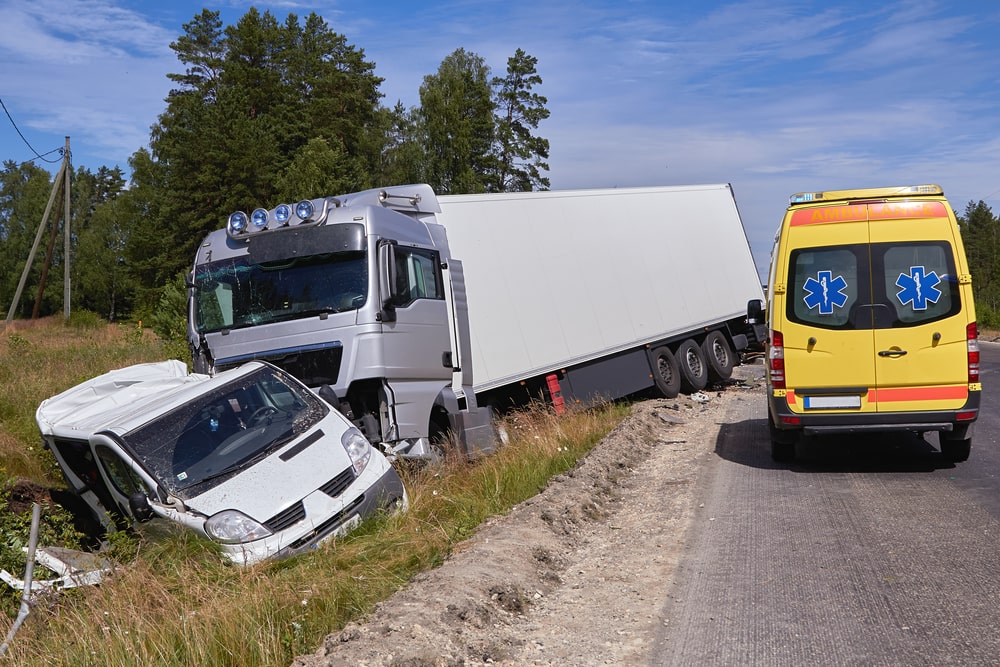Serious injuries, property damage, and complicated legal situations are all components that victims of trucking accidents stand to face. A key factor that comes up in nearly every trucking accident case is negligence. Negligence refers to the failure to exercise reasonable care, and when it’s involved in a trucking accident, it can determine who is held responsible for the damages. When negligence is proven, it often leads to the liable party being held accountable for injuries, financial losses, and other harm caused by the crash. By understanding how negligence is identified and proven in trucking accidents, we can better grasp how these cases unfold. For those involved in trucking accidents, speaking with a truck accident lawyer can be essential to determining how negligence plays into their case.
The Basics Of Negligence In Trucking Accidents
In legal terms, negligence means that someone failed to act with reasonable care, leading to harm or injury to others. In trucking accidents, negligence can take various forms, involving the driver, the trucking company, or even third-party entities. Common examples include a truck driver speeding or driving while fatigued, a company failing to maintain its fleet, or improper cargo loading. These actions—or failures to act—are critical when determining who is liable in an accident. Establishing negligence requires showing that a duty of care was owed, that the duty was breached, and that the breach directly caused the accident and resulting damages.
Negligence On The Part Of The Driver
Because of the size and weight of large trucks, truck drivers are held to high standards. When a driver acts carelessly, the risk of a catastrophic accident increases. Common negligent behaviors include driving under the influence of drugs or alcohol, driving while fatigued, and distracted driving. These actions create a dangerous situation for everyone on the road. In many cases, driver negligence is proven through logbooks, witness statements, and electronic data from the truck itself. These records can show if the driver was following hours-of-service regulations or if they were driving erratically before the crash.
The Role Of The Trucking Company
Trucking companies also play a role in accident liability. They are responsible for hiring qualified drivers, properly training them, and maintaining their fleet of vehicles. If a trucking company fails in any of these responsibilities, they may be considered negligent. For instance, a company that hires a driver with a poor driving record or fails to repair a truck’s brakes may be liable if an accident occurs. Additionally, companies may push drivers to meet unrealistic delivery deadlines, which can contribute to fatigued driving—a major cause of accidents. When a trucking company’s negligence is found to be a factor, they can be held liable for the damages caused.
Third-Party Negligence
Sometimes, the fault in a trucking accident lies with a third party. This could include a manufacturer of a defective truck part or a maintenance company that failed to repair a critical issue. Additionally, cargo companies that improperly load a truck, causing it to tip or lose control, can also be held responsible for negligence. Identifying third-party negligence is complex, requiring a thorough investigation into the different entities involved in the trucking operation. Each party has a duty of care, and when one fails in that duty, they may share liability for the accident.
Holding Negligent Parties Accountable In Trucking Accidents
When determining who is responsible for a trucking accident, negligence is a crucial factor. Whether it’s the driver, the trucking company, or a third party, proving that negligence occurred can significantly affect the outcome of a case. This concept forms the basis for legal claims, helping victims of trucking accidents seek the compensation they deserve for their injuries and damages. Attorneys like those at the Law Office of Daniel E. Stuart, P.A. can attest to how important it is to identify negligence when building a case, ensuring that the right parties are held accountable for their actions.



